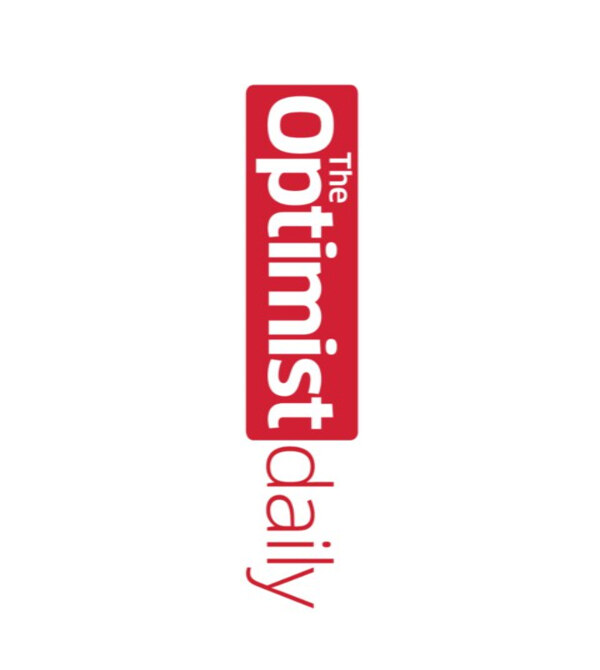From The Intelligent Optimist Magazine
Winter 2017
How co-creation makes the world of business a better place for everyone.
By Jurriaan Kamp
Business creates stress. Just look at the faces in the street during rush hour in big cities. Employees are struggling to cope with daily schedules and challenges, while management has nightmares about competitors. Business provides for many lives, but it doesn’t bring much peace to society.
The world of business is a world of scarcity. That has been the corporate mantra since the Industrial Revolution. There are limited amounts of resources, of labor and capital. Hence the fierce competition. Hence the stress. Hence the violence.
But as the world is rapidly changing, a new business reality is emerging. We are entering a world of abundance. Take energy: From horses to fossil fuels a limiting resource par excellence. However, clean, increasingly cheaper, renewable energy is now radically changing power structures—in both senses of that word. And globalization driven by the world wide web has created an ongoing spiral of innovation best described by Matt Ridley in his book The Rational Optimist: “Exchange is to cultural evolution as sex is to biological evolution. We know what happens when people have sex. We are now witnessing what happens when ideas have sex”. There are no boundaries, no end to exchange, on the Internet…
In 2000, in an article in Harvard Business Review, business professor Venkat Ramaswamy—with his colleague the late C.K. Prahalad—coined the process “co-creation”. The term aptly describes a new reality where the boundaries between consumers and producers, and customers and vendors are fading. It’s a fun world, and quite possibly a less stressful world.
Ramaswamy is Professor of Electronic Business and Marketing at the University of Michigan’s Ross School of Business. We are meeting over Skype, one the “platforms” Ramaswamy keeps referring to during our conversation. Co-creation is not just a process between “human actors” but also involves things, “non-human actors” as well. Skype is such a non-human actor. “Skype is not participating in our conversation at the moment but it does provide us with an experience. And that experience is an important part of a next opportunity for co-creation”, says Ramaswamy. iTunes provides a compelling example. Apple created the online store but it did not create all the apps. These were created by users of the platform who saw opportunities to engage with it. On its own Apple could never have created such a diverse multi-billion dollar experience.
Danish toy company Lego introduced Mindstorms, a product that allowed consumers to create their own design robots using familiar Lego bricks. In his book The Co-Creation Paradigm, Ramaswamy quotes Lego CEO, Jørgen Vig Knudstorp: “At Lego, we stumbled across the phenomenon of customer co-creation which is now becoming a major innovation practice.”
Nike created NikePlus, a running experience platform. A sensor, originally connected to your iPod, served as an interface for your runs collecting data and at the same time enabling you to play your favorite tunes. Then, after you run, you could share your experience on the NikePlus website with your community of friends and compare results. The platform became a powerful tool that gave much more relevant experience to the users. For example: People allergic to pollen could warn each other.
Co-creation reduces Lego’s costs of innovation. Ramaswamy: “Companies can now tap into talent and expertise anywhere and anytime in the world through platforms for mass collaboration and open innovation.” For Nike the savings come from reduced marketing expenses. The NikePlus platform became a powerful “word-of-mouth” tool. Runners wanted to join because they wanted to be part of the experience.
Lego and Nike not only saved money; they also provided a better user experience for their customers and thus became more successful. Compare with what Henry Ford said, just over a century ago, about his Model T: “Any customer can have a car painted any color that he wants so long as it is black.” The old world of business often was a “zero sum game”, someone’s gain would be someone else’s loss. Co-creation, however, becomes a continuously evolving, virtuous cycle of “win more—win more” outcomes. Ramaswamy: “There are potentially infinite opportunities for joint value creation. When people have better experiences, they contribute more and the system gains more which provides them with better experiences.”
Competition in the traditional sense becomes an old-fashioned concept. “If I win, why would I care that you win as well?”, asks Ramaswamy. And the interesting fact is that your own experience becomes better, your personal gains increase, when you make others more successful. Their success becomes your success. “We can create more value for ourselves by creating it together with others. That’s the new business paradigm.”
Traditional linear, top-down, management has no role to play in the co-creation world. The implementation of business and marketing strategies and plans becomes a very different exercise when users change outcomes 24/7. Ramaswamy talks about “mixing colors”. A company may introduce a new service—say, blue—to potential users—say, yellow. The only thing you know, is that when you mix blue and yellow, you get green. In the co-creation process many shades of green will emerge—there’s not one force mixing green. The way people use the technology, changes the technology. The company can continue to adjust the service to get a particular outcome, but it cannot do anything alone and it does not control a process with informed and empowered users rather than passive recipients. “Companies have to get used to ‘managing’ complexity”, says Ramaswamy and the goal of the strategist is “to effectively navigate through fog—it’s a very messy process”.
The complexity increases because platforms continue to engage with other platforms creating new platforms. Platforms operate in an ecosystem of platforms. Think about the app store where users use an application in a different context than the original creator intended. The new creation breeds a new platform, a new opportunity for a new startup. It’s almost impossible to predict which opportunities may emerge from ongoing co-creation.
Ramaswamy: “A platform faces the challenge to continue to engage its users and developers better and better. Uber, for instance, does a good job now. But you can see limitations. The economic value that is created mostly goes to the shareholders of Uber. It’s not a platform that is co-owned by its users. So, if someone would be able to provide the same services and experiences within a platform where the users also benefit from the economic gains, a platform may emerge that could potentially drive Uber to extinction.”
It’s an almost logical next step. Co-creation and collaboration open the door to new co-ownership models that will provide a much more inclusive experience for users and participants. “If you look at the earth from space, the way we have organized society doesn’t make sense. There aren’t any divisions,” says Ramaswamy, who was born and raised in India, and he adds: “Maybe that’s where my heritage comes in.”
“We think that we have an independent mind and that we can create independent outcomes. However, consciousness is one. You, me, our computers, this table, the chair you are sitting on, it’s all connected, it’s all part of the same creation,” he says. The point is that the process of co-creation stimulates the awareness of oneness as the “real reality”. Ramaswamy: “When people undergo the experience of co-creation, their thinking will evolve. They will begin to see that they are part of something bigger.”
It may still seem far-fetched but, in this way, business practices may contribute to unifying experiences of consciousness. And, co-creation is more than a business paradigm. It’s concept that applies to all “actors”—from customers, suppliers and employees to doctors, patients, and citizens. Co-creation applies as much to governments as it does to companies because the connectivity of the online world touches all aspects of society. “We live in a new world where people can participate. You can’t impose co-creation on someone. But when the opportunities arise, more and more people will join. We can co-create and configure the system we are part of—whether that system is a school, a hospital or a company. Citizens may engage in the delivery of the services to themselves as they push through the institutional boundaries that they now experience as excluding and frustrating.”
Co-creation makes people feel heard and connected. That brings peace and wellbeing in society. But the benefits of co-creation reach even deeper, suggests Ramaswamy. “Throughout their lives people can make evolving and changing contributions. There are no fixed roles anymore. Your role may vary throughout your life. That makes life much richer and more fulfilling.” In other words, your purpose in life is no longer confined to the one, same role you play again and again. Co-creation allows for the development of all your talents.
Co-creation can relieve society of enormous amount of stress and frustration. There wouldn’t be an early morning rush hour anymore when people contribute their talents in their own time from their own place. Co-creation is the pathway to a more inclusive, more peaceful world that brings more benefits to more people. Venkat Ramaswamy sees a “new age of engagement where everyone has a say in the outcomes and everyone benefits”.
Not company centric view of doing well by doing good.












